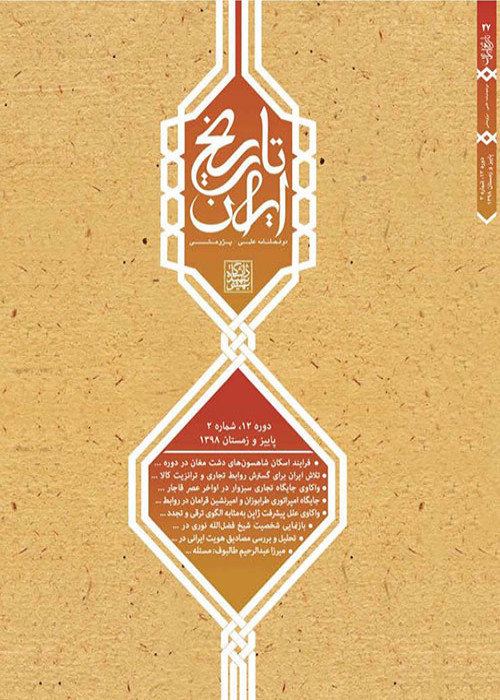Translation Status, Actors and Dimensions of the Qajar Period
Author(s):
Abstract:
In the Qajar period، translation of works and writings from European languages into Persian was considered as a cultural، scientific and experimental exchange which had a lot of influence on the worldview، culture and education of social activist groups. In this process، the relationship between language and culture in translation as an important principle in the cultural studies had played an important role in the development of an effective dialogue between the original European text and the mind and culture of the new creators (translators) in Iran. What causes the cultural distance between the original text and the translated text to be lessened is related to the important role played by translation and translator in the cultural transmission and the relation between the cultural policy and translation. Thus، the role of cultural influences on the choice of a text for translation، transmission and transformation of cultural myths as well as scientific and social concepts، erroneous interpretations and cultural misunderstandings، untranslatable cultural elements، cultural censorship، translation and linguistic dominance، the cultural role of translation in cultural construction and the maintenance of ethnic، national and religious identity are all important issues worthy of consideration and exploration in the translations of the Qajar period. In terms of the translation of European books، the Qajar period is of great importance. Translating and publishing books which had started at the time of Mirza Abbas and the great Mirza Qá''im Maqam Farahani later flourished and highly expanded with the establishment of the institute of translation and publication of the court and the Academy (Dar- al-fonun). In fact، a large number of books – not only on scholarly، military، philosophical and economical subjects but also on history – were translated and published in this period. Despite the fact that translating this new European knowledge was a means of finding a way for Iran to join the caravan of civilization and new knowledge and to be exposed to newly opened gates of science and enlightenment، it cannot be denied that it all had its disadvantages and flaws the identification of which is highly important.
Keywords:
Translation , Cultural Transmission , Translators , Original Text , Country of Destination , Dar , al , tarjomah Naser , al , din , shah , The Qajar period
Language:
Persian
Published:
Journal of Iran History, Volume:4 Issue: 2, 2011
Page:
1
magiran.com/p1073823
دانلود و مطالعه متن این مقاله با یکی از روشهای زیر امکان پذیر است:
اشتراک شخصی
با عضویت و پرداخت آنلاین حق اشتراک یکساله به مبلغ 1,390,000ريال میتوانید 70 عنوان مطلب دانلود کنید!
اشتراک سازمانی
به کتابخانه دانشگاه یا محل کار خود پیشنهاد کنید تا اشتراک سازمانی این پایگاه را برای دسترسی نامحدود همه کاربران به متن مطالب تهیه نمایند!
توجه!
- حق عضویت دریافتی صرف حمایت از نشریات عضو و نگهداری، تکمیل و توسعه مگیران میشود.
- پرداخت حق اشتراک و دانلود مقالات اجازه بازنشر آن در سایر رسانههای چاپی و دیجیتال را به کاربر نمیدهد.
In order to view content subscription is required
Personal subscription
Subscribe magiran.com for 70 € euros via PayPal and download 70 articles during a year.
Organization subscription
Please contact us to subscribe your university or library for unlimited access!


